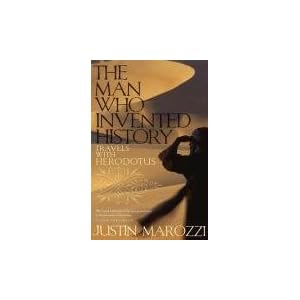 Since most human beings are fascinated by the past and are curious to know more about the bygone era, the title of the book is tempting enough to attract a sizeable no of occasional readers like me as well as serious researchers on the subject. As you leaf through the book, Ferdinand Mount does not disappoint you.
Since most human beings are fascinated by the past and are curious to know more about the bygone era, the title of the book is tempting enough to attract a sizeable no of occasional readers like me as well as serious researchers on the subject. As you leaf through the book, Ferdinand Mount does not disappoint you.‘So much about contemporary society bears an astonishing resemblance to the most prominent features of the classical world, the ways in which we live our rich and varied lives correspond almost eerily to the ways in which the Greeks and Romans lived theirs.. This is not a conscious imitation but has arisen naturally.’ By us the author means people in Britain and more generally in Europe and North America. The book argues that after 2000 years of sailing western society is now back at the jetty it embarked from. Though the book basically talks about western situations, in a globalised world it is not difficult to trace similarities with any urban society for that matter.
The author looks at different aspects of life and society and draws insightful similarities between the present and the classical past. .The book is divided into two main sections - Body and Mind. The chapters under Body are : the bath , the gym, the bedroom and the kitchen .Under Mind the sections are : Science ,Religion, New Age , Dialogue, Fame ,Art ,Nature , Scipio’s Dream.
The opening chapter talks about the Roman baths and the tradition of public bathing. Public baths sometimes known as Turkish baths were built in Britain and by late nineteenth century many cities boasted multiple bathing joints. These baths were extremely popular amongst all classes. Every rising industrial centre was proud of its baths.
In the chapter on Kitchen the author comments “ today an articulate concern with food and drink is the mark of a civilized person. A person who knows about food is regarded as knowing much more about life. Food writers have multiplied and there is a food column in every newspaper. In the Greek world Sicilians were gourmets and gourmands. Socrates commends “these refinements of Sicilian cookery for which the tables of Syracuse are famous”. By natural progression Sicily also bred the first cookery writers around fifth or fourth century BC. Most of theses works have perished with the exception of some like “gastronomia by Archestrus”.However the writer observes- the paradox is “Despite this torrent of advice on how to cook , the shelves of fat cookbooks in the bookshops and the huge fortunes piled up by cookery writers – in the shape of Delia Smith, enough to buy Norwich City football club- it is unlikely that people are in fact cooking at home more than they used to. Indeed if you look at the rows of restaurants springing up along every street, credit crunch notwithstanding , people must be eating in a good deal less and eating out a lot more.”
How true. It reminded me of a discussion I recently had with the proprietor of one of Kolkata’s oldest bookshops, who was lamenting the general decline of readership of good books and the popularity of cookbooks amongst fashionable urban ladies who made rare entries into their kitchens. An elderly lady who had spent long hours of her life in dark kitchens once remarked that today’s housewives have custom fitted modular kitchens but only for the benefit of their maid –cum-cooks .
In the chapter on Nature the author writes “The Climate change campaign (and the occasional ruthlessness of it s tactics) is as much a symptom as a cause of deeper and longer established impulse : the urge to re-earth ourselves.
There is a new Goddess to be worshipped : Gaia , the old earth goddess but now dressed in the robes of modern science. “ In Greek mythology “ Gaia is the source. She is mother Earth ,”Terra Mater” “ the alpha and omega of life. There has been a startling growth in the strength and number of organizations devoted to protecting the” environment” or the skin of Gaia. With the great carbon panic cheque books and credit cards are not enough. Everyone has to do a bit for the environment- discarding plastic bags, recycling waste ,slashing air miles, walking and cycling instead of motoring to work and what not. We all need to touch Gaia. Climate change deniers have been compared to Holocaust deniers. Some of the few sceptics have been denied research funds and their opportunities for promotion or employment blocked.
The book is full of fascinating details. President Reagan consulted astrologers and his favourite was Joan Quigley who drew a horoscope of Gorbachev before the two leaders met . A survey showed that 48% of Wall Street stockholders used horoscopes when deciding what to buy or sell.
The first account of some one reading without moving his lips can be dated to AD383 when St Augustine met Ambrose, the Bishop of Milan reading silently in his cell. In his Confessions St. Augustine describes this experience. Democritus lived to the age of 100 and was known as ‘Sophia” – Brains. He was the laughing philosopher and wrote an essay on cheerfulness.” In the Loeb Classical library where Greek texts faced English translations, the English right –hand page would switch to Latin when the text reached an indecent passage.”
The Financial Times recommends this as a good holiday companion. I would like to agree but only if you are holidaying alone on your own.
Ref : Image above "booktopia.com.au"











